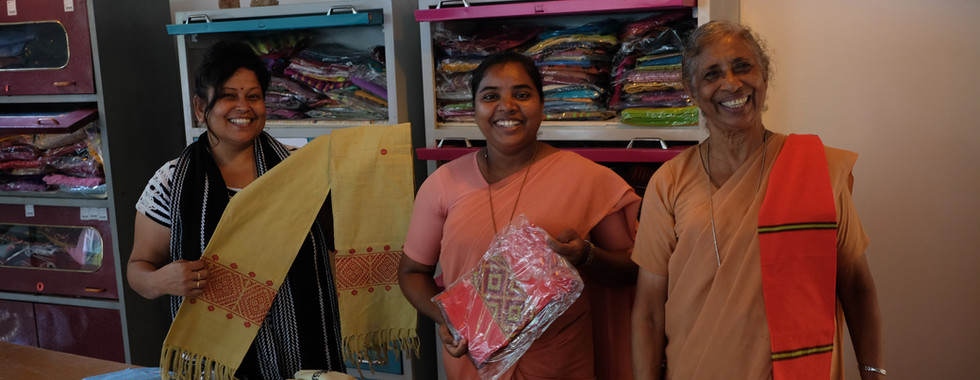The women behind your tea bag
- Arise

- Dec 12, 2023
- 3 min read
Updated: Jan 10, 2024
Arise Director of Programmes, Angela Proctor, reflects on a recent project visit.
No matter how long you’ve worked in this sector, how many community visits you’ve undertaken or how much you think you’re prepared, when you arrive at a target community and take that first step on broken ground, the injustice hits you hard.
I watched a queue of small, under-nourished women line up to weigh their recently picked tea leaves before taking a brief lunch break, and it felt wrong. Unbelievably strong women held bags of tea leaves weighing over 30kg after a long morning of picking. I felt sadness and awe at their strength to work like this, so that they can support their families and their children and change their futures. I was watching exploitation in action, seeing powerful women forced to suffer excessively to change their futures. It was conflicting to watch this and feel inspired nevertheless.
Above: Arise-supported anti-slavery networks and programmes (credit: Kia Wrigley)
With support of local anti-trafficking advocates, who in this case are Catholic sisters, these tea workers had successfully campaigned to increase their wages. They were the ones who introduced the weighing system - not to keep tabs on their work but to make sure no one, not the men driving the trucks or the tea garden managers, could lie about how much tea they had picked. This was empowering. These women had ensured changes to their working conditions to make their own lives, and the lives of the men and women who stand for 10 hours a day picking leaves, better.
I think about where that tea has gone since I left. Where was it shipped to? Who are the people taking sips of delicious tea after a long day? Slavery has found its way into every aspect of our lives – in the tea we drink, the food we eat, the clothes we wear and even the phones and laptops we use. Prevention is an uphill battle and my recent visit to Assam’s tea gardens reminded me what it looks like on the other side. But it also showed me that these workers are not alone.
As I stood awkwardly next to the car, unsure of what to do next, I looked around to see sisters amongst the women. They were chatting, laughing, joking, checking in on those they knew and introducing themselves to those they didn’t. The sisters we work with in Assam’s tea gardens, and in high-risk sectors and regions across India, are bringing about real change in people’s lives - through increased wages and fairer working conditions but also through the love and care they show for every single person they come into contact with. The sisters show courage and affection in ways I have not seen in other parts of my working life.
It was a privilege to see first-hand the work Arise is supporting in the tea gardens. In recent years, Arise has supported over 15,000 workers and their family members. Alongside our frontline partners, we facilitate skills training and income generation projects, along with extra education, community development schemes, and if necessary, direct material help. I hope we can contrinue to expand our network across similar regions, preventing at-risk families falling into exploitation.
When I think back to the moment I got out of the car to see the many women cowering beneath huge bags of tea leaves, I will remember the injustice. I will also remember the smiles on their faces as they spotted the sisters, and the joy that shone out of the sisters as they stood by the tea garden workers.

Above: Arise India Coodinator, Sr Sherly Thomas SJL, and Programmes Team (L-R Ange Proctor, Monica Moses, Kia Wrigley)




























Comments